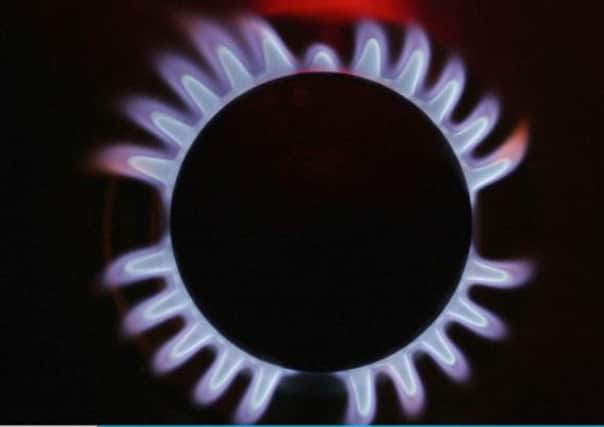Leaders: Big Six energy firms leave little choice


It analysed the accounts of the six firms and it found that overall profits from the parts of their businesses that supply households jumped up from £681 million in 2011 to £1,190m in 2012, an increase of 75 per cent. That doesn’t sound like a failure to make money, it sounds a lot like making quite big bucks, especially as Ofgem says that this was a period when revenue grew 50 per cent faster than costs.
Since rising costs, particularly increases in the wholesale price of gas – burned both in power stations to generate electricity and by householders to heat their homes – were blamed by the power firms as the prime cause of energy bill price hikes, it rather looks as though the power companies have some more explaining to do.
Advertisement
Hide AdAdvertisement
Hide AdOfgem has provided some of the explanation – that 2012 was an unusually cold year, so consumers used more energy for heating. As that energy can be provided at a very small marginal cost, the extra heating demanded can be supplied for much greater profit than can lower levels of demand.
This is why Ofgem thinks that the market is not operating effectively as, when a market is operating efficiently, companies should compete for customers with offers of lower prices. Users should then switch, reducing profits from levels that are excessive.
Of course, the energy market does not operate like others where, when prices go up, demand drops. In the energy business, if price rises coincide with cold weather, people have little alternative but to demand more energy in order to keep warm, so a single-digit price rise can easily become a double-digit bill increase.
The companies collectively argue that these earnings are needed to pay for the investments, admittedly huge, they have to make in new distribution lines to connect up new sources such as wind energy and in new generating plant to replace old coal-fired power stations.
But it also seems clear that these extra earnings from domestic consumers were fortuitous. They came from a prolonged bout of cold weather which, by its very nature, cannot be predicted. Much of the additional profit made was, therefore, a windfall over and above the amount they had calculated was necessary to pay for the relevant investment.
So why no return to the consumer? As Ofgem comments, profits are not a right, but have to be earned by giving customers a good service and a good deal. The companies are not doing that. Perhaps they deserve, and the public needs, politicians having more say in what they charge.
We must curb expanding waistbands
IT IS not just young people who have become alarmingly fat, but old people, too. Researchers at Glasgow University have discovered that more than a third of pensioners are now obese and that the degree of obesity among the elderly has more than doubled in the past decade.
Ballooning waistbands now appear to be a chronic condition afflicting Scotland. While the researchers discovered the same trends in England and Wales, they are worse among Scots.
Advertisement
Hide AdAdvertisement
Hide AdThe statistics are pretty dreadful across all age groups, but among pensioners they are shocking and among older women, absolutely appalling. Among men aged 60 to 70, 30 per cent have bigger than 40-inch girths, while in women aged 60 to 75, more than half (55 per cent) have over-extended waistbands.
The researchers cast no light on why this should be happening. A greater inclination to inactivity coupled with a general tendency to eat too much of the wrong food may account for it. While a fuller understanding of what is happening here is important, there is a greater need to curb this expansion. It is, as lead researcher Professor Mike Lean says, a major public health issue. The elderly tend to make greater use of National Health Services anyway, but obese old people make greater use of it still. The rise suggests a drain on resources, which could be avoided, indeed is self-inflicted, and is going to get much worse.
This isn’t just a gripe about scarce taxpayers’ funds. Most old people have worked hard and deserve an enjoyable retirement. However, these statistics suggest that old age will be anything but enjoyable for far too many, a distressing fact that ought to be rectified.